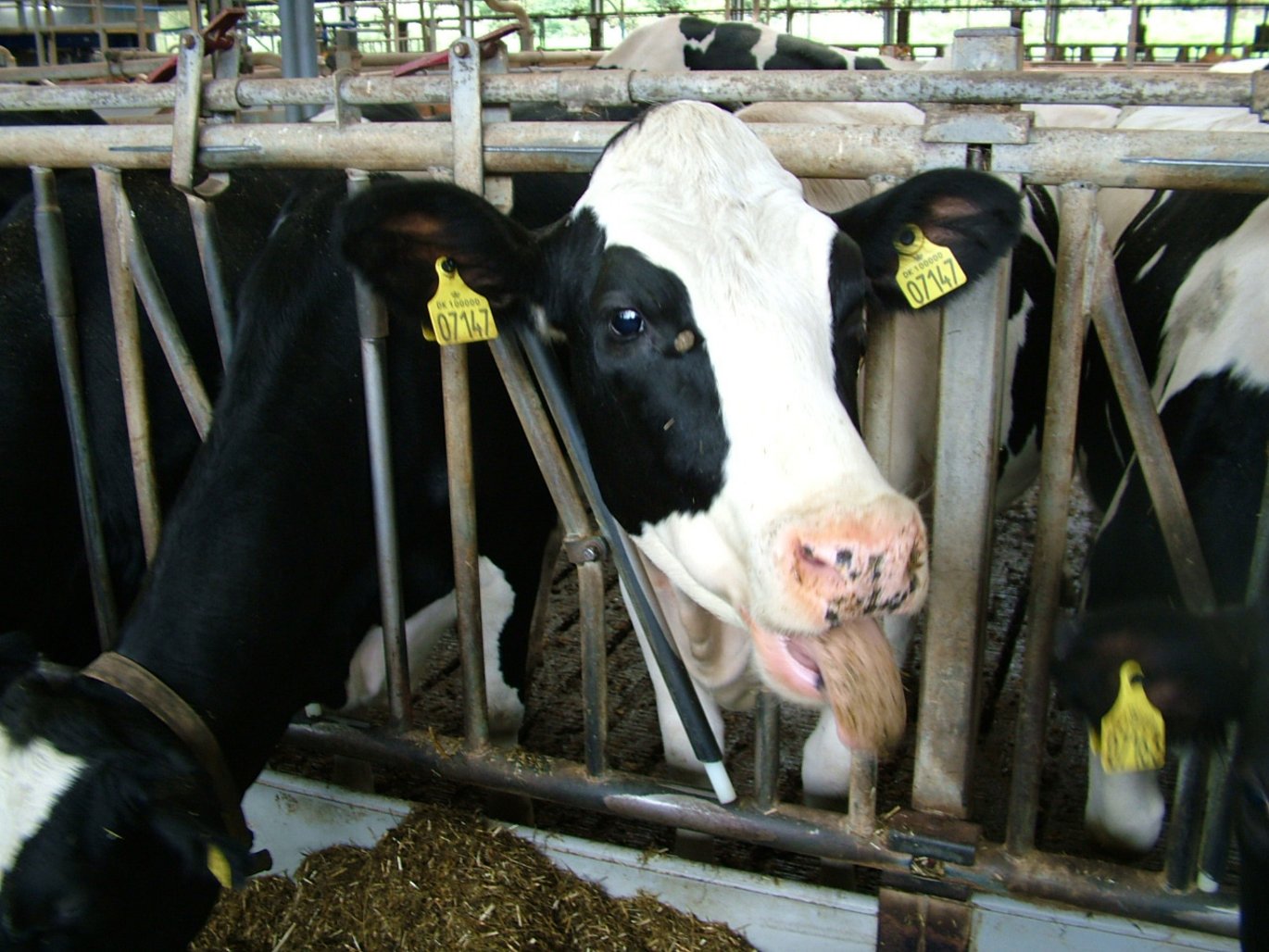Kan nordisk tang mindske udskillelsen af metan hos kvæg?
Nu skal det undersøges, om nordiske tangarter indeholder metanreducerende komponenter, som er egnet i foderet til kvæg og dermed kan bidrage væsentligt til at reducere kvægbrugets udledning af klimagassen metan.

A new three-year project 'Mabicow' has just been initiated at the Department of Animal and Veterinary Sciences at Aarhus University. The aim is to develop a feed additive that can reduce methane excretion in cows by more than 45% via bioactive substances in seaweed. The project is conducted in collaboration with the Danish Technological Institute (DTI), Ocean Rainforest, Lactobio, Chr Hansen, Vilofoss and DLG, and is supported by AgriFoodTure Innomission 3 under Innovation Fund Denmark.
The background for the project is an ever-increasing pressure on the cattle industry to solve the challenge of excretion of methane from cattle. Cattle account for approx. 75% of the methane emissions from Danish agriculture, which corresponds to 35% of total greenhouse gas emissions from the agricultural sector in Denmark. According to Danish climate legislation from 2020, total greenhouse gas emissions must be reduced by 70% in 2030, and the Danish cattle industry must be CO2 neutral in 2050.
Feeding is the quickest way to the goal
"The quickest way to reach the target is by influencing the methane-producing microorganisms in the cows' rumen via the feed," says Mette Olaf Nielsen, Professor at the Department of Animal and Veterinary Sciences at Aarhus University. At the moment, there is only one EU-approved product on the market (Bvas/3NOP), which can reduce the methane-production in cows by approx. one third. The product is currently being tested on dairy cows at the Department of Animal and Veterinary Sciences at AU Viborg in order to examine the effects of the substance on, among other things, the cows’ feed intake and milk production.
Hard work is carried out in other areas in order to find solutions to the climate challenges of the cattle sector – and most recently Mette Olaf Nielsen has helped develop the substance X, which has unfortunately partly been found in cows' milk, and will therefore be difficult to approve for dairy cows. However, effort is now put into the remainder of the substance 'X2', which has shown promising perspectives both in the laboratory and in a pilot test with two cows.
New project tests bioactive substances in seaweed
In addition, Mette O. Nielsen is now also heading the new project called "Mabicow", which aims to develop a feed additive to reduce methane on the basis of bioactive components in seaweed. "We know from previous research that a tropical type of seaweed can eliminate the methane production almost completely, but since the anti-methanogenic effect is linked to substances that can, among other things, be ozone-depleting or carcinogenic, it is not certain that it is a viable route," says Mette O. Nielsen.
However, according to Mette O. Nielsen, a recent study in the project ClimateFeed has shown that four Nordic seaweed species do not contain these undesirable compounds as the tropical type does, but in the laboratory, they can still reduce methane, albeit not as effectively as the tropical. "Therefore, these seaweed species must produce some bioactive substances that inhibit the methane-producing microorganisms (so-called archaea). There are, therefore, some very exciting perspectives that we have started to investigate in depth in the Mabicow project, which we have just initiated in 2022," says Mette O. Nielsen.
Acitvities in project Mabicow
The project "Mabicow" is divided into four sub-studies:
- Harvesting and cultivating macroalgae species (seaweed species) known for having anti-methanogenic activities.
- Identification and purification of anti-methanogenic bioactive substances. The three to four potentially best suited for methane reduction are selected here.
- In vitro study (i.e. in the laboratory): simulation of how bioactive substances affect the microbes in the rumen and fermentation of the feed.
- In vivo study (in the cow): test of the potential of bioactive substances in relation to the reduction of methane-production in the rumen of dairy cows, as well as the effect on milk production, health, etc.
Perspectives of the new feed additive for dairy cows
"Our hope is that in the project, we will find a new feed additive for dairy cows, which can reduce the methane-production in cows by at least 45% without having a negative effect on productivity, health and food safety. We expect that such a product will be available for the market within three to five years after the end of the project”, Mette O. Nielsen concludes.
| Supplementary information | |
| We strive to ensure that all of our articles comply with Universities Denmark’s principles for good research communication. Therefore, we have supplemented the article with the following information: | |
Funding | AgriFoodTure Innomission 3 (Innovation Fund Denmark). |
Collaborators | Aarhus University (AU), Danish Technological Institute (DTI), Ocean Rainforest, Lactobio, Vilofoss, DLG |
Learn more |
|
Contact | Professor Mette Olaf Nielsen E-mail: mon@anivet.au.dk |
